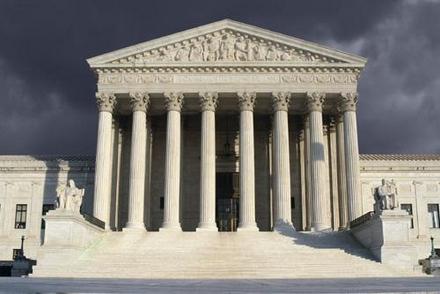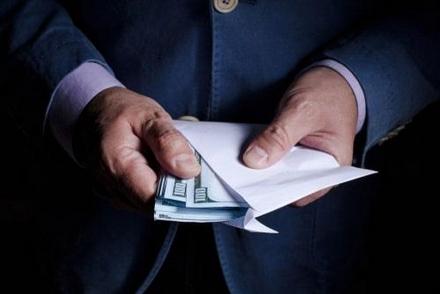TELEPHONES ANSWERED 24 HOURS A DAY
Recent Blog Posts
Illinois Businessman Faces Federal Charges Related to U.S. Capitol Riots
 The nation looked on in horror as a protest in the nation’s capital turned violent and destructive last week, leading to a number of injuries and widespread damage to one of America’s most iconic buildings. Thousands of protestors gathered in front of the U.S. Capitol building in Washington, DC, on January 6 as lawmakers were assembled to certify the results of November’s presidential election. According to various news outlets, the protest turned destructive as hundreds of people managed to get past Capitol security and into the building itself.
The nation looked on in horror as a protest in the nation’s capital turned violent and destructive last week, leading to a number of injuries and widespread damage to one of America’s most iconic buildings. Thousands of protestors gathered in front of the U.S. Capitol building in Washington, DC, on January 6 as lawmakers were assembled to certify the results of November’s presidential election. According to various news outlets, the protest turned destructive as hundreds of people managed to get past Capitol security and into the building itself.
In the days that followed, authorities announced the filing of federal charges against a number of the people who were allegedly involved. Among the first 13 arrested on federal charges was the CEO of a Chicago-area tech company who is now facing at least three federal charges for his alleged actions last week. Several dozen others were arrested and charged with unlawful entry and curfew violations in Washington, DC Superior Court.
5 Ways to Prepare for Your Federal Criminal Trial
 It is normal to feel nervous before your appearance in court when you are facing criminal charges, especially if the case is being handled in federal court. It is important to prepare yourself for trial because judges will not take kindly to a defendant who is not acting in accordance with expected decorum or who comes unprepared. Preparing for a federal criminal trial requires prior planning, and working with an experienced attorney offers significant benefits. Here are a few ways you can get ready for your criminal trial:
It is normal to feel nervous before your appearance in court when you are facing criminal charges, especially if the case is being handled in federal court. It is important to prepare yourself for trial because judges will not take kindly to a defendant who is not acting in accordance with expected decorum or who comes unprepared. Preparing for a federal criminal trial requires prior planning, and working with an experienced attorney offers significant benefits. Here are a few ways you can get ready for your criminal trial:
#1. Prepare Your Evidence
One of the most crucial elements of your defense is evidence that you bring to the trial that supports your claim of innocence. Evidence can be in two forms: witness testimony and exhibits. Witnesses can be people who keep records relevant to the case, experts who are qualified to give an opinion about a certain part of the case, or any other people who have relevant information about the case. Exhibits are items that support your side of the case. These things can include documents or other items used to prove your point or disprove the prosecution’s point, records, or photographs. Your attorney will be able to help you prepare the evidence.
What You Should Know About Online Sex Crimes
 The issue is not new and is, in fact, as old as the internet itself, but sexually-based crimes committed on the internet have garnered more professional and social attention as of late. The most notorious internet sex crimes—and the most commonly perpetrated—are the production and dissemination of child pornography. There are, however, many other types of online sex crimes as well.
The issue is not new and is, in fact, as old as the internet itself, but sexually-based crimes committed on the internet have garnered more professional and social attention as of late. The most notorious internet sex crimes—and the most commonly perpetrated—are the production and dissemination of child pornography. There are, however, many other types of online sex crimes as well.
For example, soliciting chats of a sexual nature from any vulnerable person, including a child or anyone who is unable to make the decision for him or herself, is considered an Internet crime. Inappropriate solicitation can take the form of asking the person to send a sexual photo of him or herself, or asking a minor to meet somewhere with sexual intentions.
The Prevalence of Online Sex Crimes
What You Should Know About Federal Drug Trafficking Charges
 Possessing, selling, or distributing drugs can be a serious offense that carries serious charges, no matter where you live. When you are charged with drug trafficking, however, the sentence and corresponding fines can be even more severe. If you have been charged in federal court with drug trafficking, it is imperative to immediately speak with a legal professional. The longer you wait to understand the charges you are facing and what options you have, the more difficult it may be to build a proper case to mitigate the effects of the charges.
Possessing, selling, or distributing drugs can be a serious offense that carries serious charges, no matter where you live. When you are charged with drug trafficking, however, the sentence and corresponding fines can be even more severe. If you have been charged in federal court with drug trafficking, it is imperative to immediately speak with a legal professional. The longer you wait to understand the charges you are facing and what options you have, the more difficult it may be to build a proper case to mitigate the effects of the charges.
The first step in any criminal case is to understand the type of charge and exactly what it means. The differences between drug trafficking and distributing are many, but the basic difference is that a drug trafficking charge will likely be a federal charge while a possession or simple distribution charge most often will be handled at the state level. Federal charges generally carry longer sentences and can have a more severe effect on a person’s long-term record.
What Is the Burden of Proof in a Federal Criminal Case?
 In any criminal case—including a federal criminal case—the prosecutors bear the burden of proof to demonstrate that the defendant has committed the crime in question. But, what does it mean to prove the defendant’s guilt? The standard of proof in a criminal case is “beyond a reasonable doubt,” which means that the jury or the judge must believe “beyond a reasonable doubt” that the suspect did what prosecutors say he or she did. The tricky part of this standard, however, is defining reasonable doubt.
In any criminal case—including a federal criminal case—the prosecutors bear the burden of proof to demonstrate that the defendant has committed the crime in question. But, what does it mean to prove the defendant’s guilt? The standard of proof in a criminal case is “beyond a reasonable doubt,” which means that the jury or the judge must believe “beyond a reasonable doubt” that the suspect did what prosecutors say he or she did. The tricky part of this standard, however, is defining reasonable doubt.
Defining Reasonable Doubt
Depending on the case in question, prosecutors may attempt to explain to jurors what reasonable doubt means. Defense attorneys sometimes present a definition of their own, as well. For example, a prosecuting attorney in California once compared the standard to a puzzle that is missing a single piece, suggesting that even with a missing piece, it was still clear what the puzzle showed. The case resulted in a conviction that was later overturned on appeal because by attempting to define reasonable doubt, the prosecutor effectively told jurors they could convict the defendant based on incomplete information.
4 Mistakes to Avoid When Facing Federal Criminal Charges
 When you are charged with a federal criminal offense, you are likely to be very upset and confused. You might not know how you ended up being charged, and you probably have serious concerns about how the case will play out. These are all understandable feelings, but if left unchecked, they can lead to you taking the wrong type of action. You could find yourself doing things that might actually harm your case and make things worse for yourself. If you are facing federal charges, be aware of these common mistakes so that you can avoid them.
When you are charged with a federal criminal offense, you are likely to be very upset and confused. You might not know how you ended up being charged, and you probably have serious concerns about how the case will play out. These are all understandable feelings, but if left unchecked, they can lead to you taking the wrong type of action. You could find yourself doing things that might actually harm your case and make things worse for yourself. If you are facing federal charges, be aware of these common mistakes so that you can avoid them.
1. Careless Posting on Social Media
When a person is arrested on any criminal charges, he or she is given the Miranda warnings. These warnings remind a person of his or her right to an attorney and the right to remain silent. They also remind the suspect that anything he or she says can be used against him or her. It is critical to remember that this does not just apply to conversations or interrogations with the police. Anything you say at any time, including what you post on Facebook, Instagram, or any other social media platform, could be used by prosecutors against you. The best advice is to stay away from social media entirely while your case is ongoing, but you should absolutely avoid posting anything related to the case or the alleged crime.
What Are Some of the Most Common Federal Firearms Offenses?
 The laws that govern firearms on a federal level can be very complex, and a conviction on federal firearms charges can lead to serious criminal penalties. In addition, these laws also give prosecutors a variety of ways to prosecute those suspected of such offenses. As a result, federal prosecution of gun-related crimes has increased in recent decades. With this in mind, it is important to understand the law and how it might apply if you are ever facing federal weapons charges.
The laws that govern firearms on a federal level can be very complex, and a conviction on federal firearms charges can lead to serious criminal penalties. In addition, these laws also give prosecutors a variety of ways to prosecute those suspected of such offenses. As a result, federal prosecution of gun-related crimes has increased in recent decades. With this in mind, it is important to understand the law and how it might apply if you are ever facing federal weapons charges.
Illegal Selling of Firearms
There are a number of federal statutes that pertain to selling firearms, including requirements for licensing and the restriction of moving certain types of firearms from one state to another. Under Title 18, Section 922 (a) of the United States Code, it is illegal to sell firearms across state lines unless the seller has a license to do so. If you are convicted of interstate selling of firearms without a license, you could face five years in federal prison.
What You Should Know About the Federal Crime of Money Laundering
 If you have ever watched crime shows on television, you are probably familiar with the term “money laundering.” While most people know that money laundering is illegal, many are not sure about what it actually means. Money laundering is a very serious offense that is prosecutable at both the state and federal level, and as a federal offense, it carries the possibility of severe criminal penalties.
If you have ever watched crime shows on television, you are probably familiar with the term “money laundering.” While most people know that money laundering is illegal, many are not sure about what it actually means. Money laundering is a very serious offense that is prosecutable at both the state and federal level, and as a federal offense, it carries the possibility of severe criminal penalties.
Understanding Money Laundering
Money laundering, in general, refers to a process through which a person or group of people attempts to conceal the sources, control, or ownership of money that was generated from certain crimes. It is common for money to be “laundered” by moving it to and from separate accounts, including foreign accounts, or by concealing funds amidst the revenue of seemingly legitimate businesses.
Many different types of crimes could generate funds that a person or criminal enterprise would wish to launder, including but not limited to:
Federal Investigations: When Is It Time to Call an Attorney?
 Criminal offenses can be prosecuted at either the state or federal level depending on a number of factors, including the nature of the alleged crime, where the offense allegedly took place, and how the alleged crime was supposedly committed. Most crimes are handled by local police departments and county prosecutors, and the charges for such offenses are filed in the circuit court of the county in which they occurred. Circuit courts are part of the state court system.
Criminal offenses can be prosecuted at either the state or federal level depending on a number of factors, including the nature of the alleged crime, where the offense allegedly took place, and how the alleged crime was supposedly committed. Most crimes are handled by local police departments and county prosecutors, and the charges for such offenses are filed in the circuit court of the county in which they occurred. Circuit courts are part of the state court system.
Sometimes, however, an offense is charged as a federal crime. In such a case, the investigation is usually supervised by one or more federal agencies, and a United States Attorney files the charge in United States District Court. A federal offense is an extremely serious matter, and it is important to contact a qualified federal crimes defense attorney as soon you realize that federal charges are even remotely possible. The question, of course, is: How do you know when charges are becoming possible?
What Are the Defenses to White Collar Crimes?
 White collar crimes are non-violent offenses that are typically committed for financial gain. Embezzlement, securities fraud, money laundering, and insider trading are all common examples of white-collar crimes. The FBI aggressively investigates these crimes and federal prosecutors are always very eager to secure a conviction in these cases. Although white collar crimes do not involve violence, convictions still carry high fines and lengthy terms in federal prison.
White collar crimes are non-violent offenses that are typically committed for financial gain. Embezzlement, securities fraud, money laundering, and insider trading are all common examples of white-collar crimes. The FBI aggressively investigates these crimes and federal prosecutors are always very eager to secure a conviction in these cases. Although white collar crimes do not involve violence, convictions still carry high fines and lengthy terms in federal prison.
Anyone charged with a white collar crime must work with a federal criminal defense attorney that understands the defenses for these crimes and how to use them effectively. If you are facing charges, below are the most common defenses used in these cases.
Finding Weaknesses in the Prosecution’s Case
Federal prosecutors typically do not take cases to trial unless they have a fair amount of evidence and have built a strong case against the defendant. Still, this does not mean that every case a prosecutor takes is ironclad. A defense attorney will find holes or errors in a prosecutor’s case, and disprove key points in their argument to have the case dismissed.




